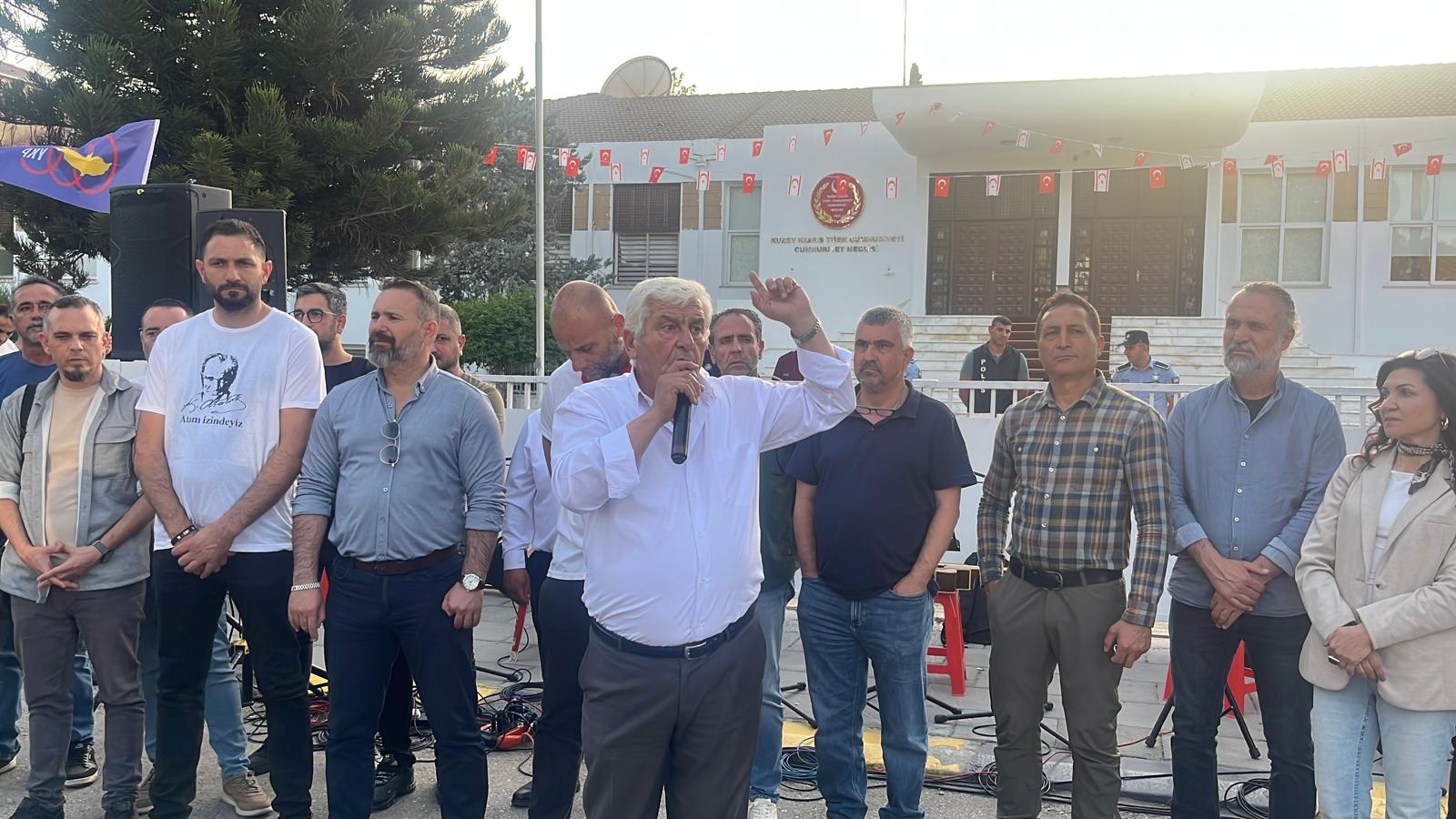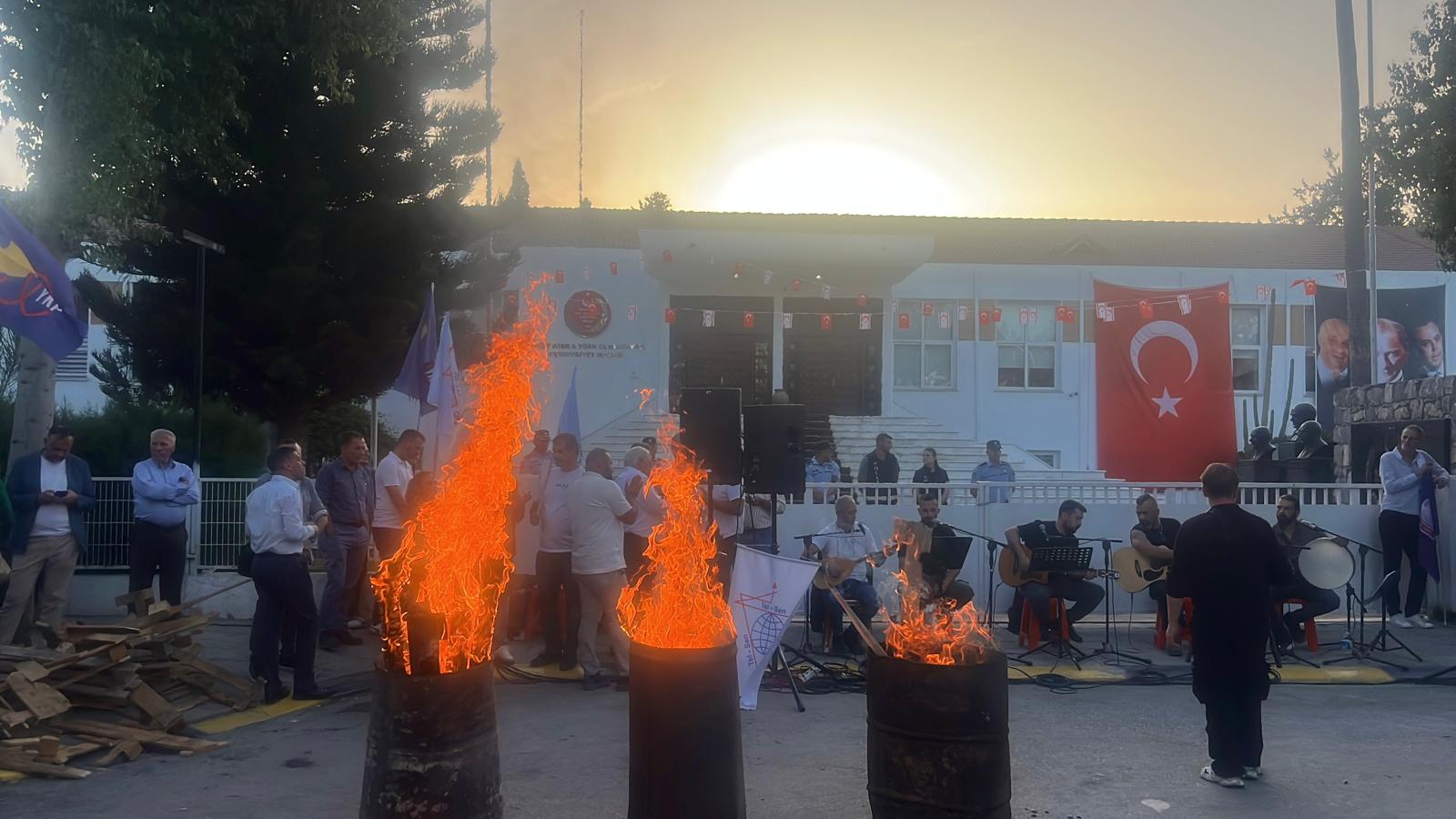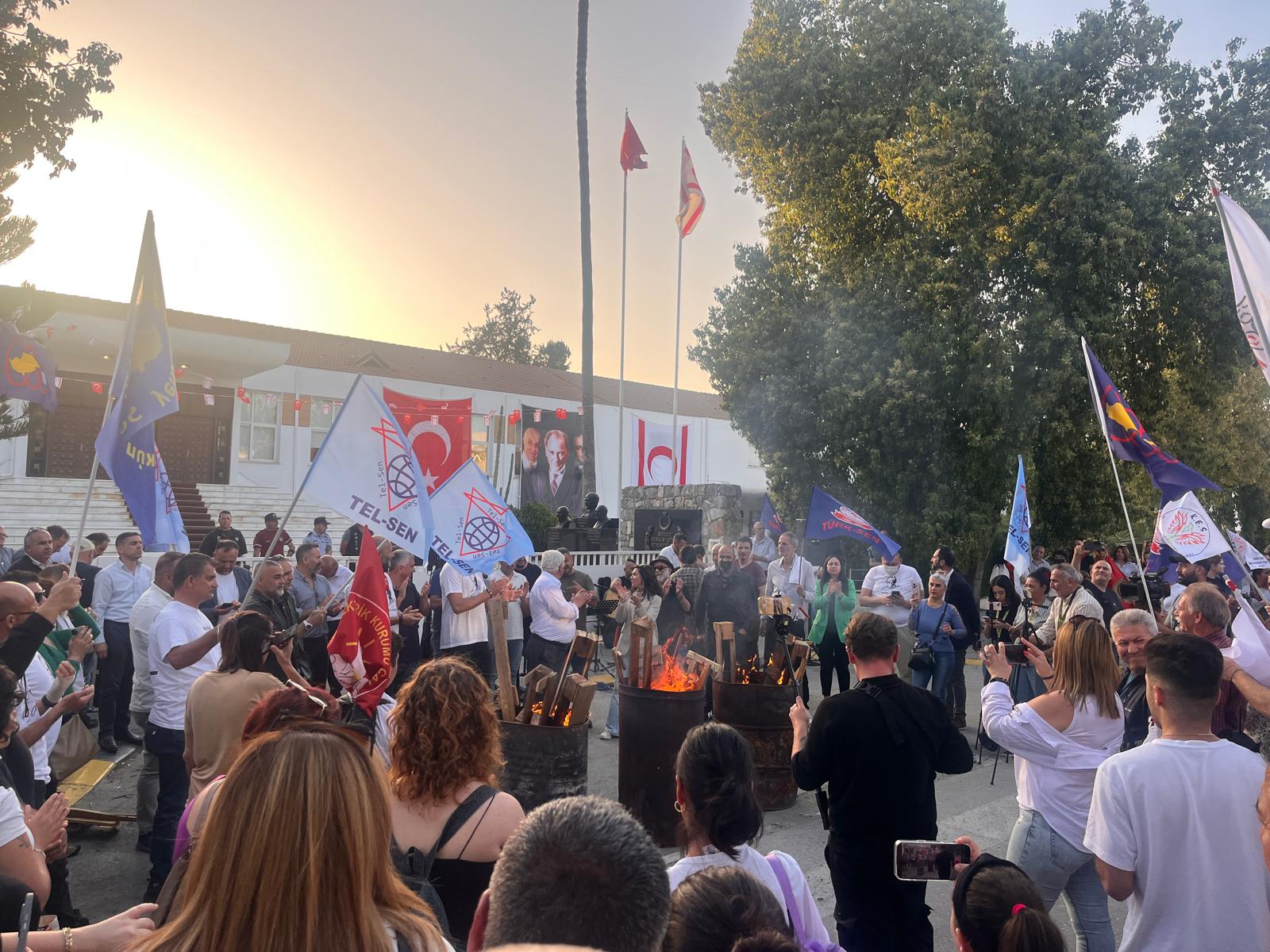Fires were once again lit outside the north’s ‘parliament’ in northern Nicosia on Tuesday in protest against the ruling coalition’s decision to legalise the wearing of hijabs by children at public schools.
Tuesday was the seventh consecutive weekday on which fires have been lit by opposition political parties and trade unions, with Monday’s protest having taken place in Kyrenia.
It was the turn of trade union Turk-Sen leader Arslan Bicakli to address the crowds, and he, like most so far, took aim at the north’s ruling coalition.
“Politicians who believe they are governing this country have created a new agenda for no reason after 50 years,” he began, before swiftly pointing out that he has no problem with the hijab as an item but believes it should be kept away from schools.
“There is freedom, that is true, but in every school, every political party, every trade union, in every country, in every mosque, in everything, in every institution there are rules. The rules are certain. It is certain how the boys will dress and how the girls will dress. That is not open to discussion,” he said.
He also said he believes religious choice is a matter for adults, before speaking on the matter of the protests themselves.
“The people who claim to be the government in this country must lend an ear to the voice of society … We have been protesting for 15 days, the whole of society is on its feet, and those in government are acting as if nothing happens,” he said.
“Do not force things. I am calling out from here, do not attempt to force this any more. Because in this country, soon, labour peace will be disrupted, and you will be the reason for this. Withdraw this agenda as soon as tomorrow. Let the schools continue as they did.”

He then added, “I am curious, and I would like to ask from here, for the love of God, do you have nothing else to do in this country as a government”, before saying the current ruling coalition has “ruined all of its institutions”.
He closed his speech by making reference to the fact that in Turkey and the north, April 23 is celebrated as “youth and sports day”, in a direct address to the ruling coalition, who had invited schoolchildren to join them at work at public buildings in the morning.
“What happened today, did you celebrate April 23? You went to the children and you put them in your seats. I wish you had gone to the portacabins and celebrated there, too!”, he said, referencing the portacabins in which many Turkish Cypriot children are now taught after some schools were declared unsafe following an earthquake in 2023.
His speech was followed by a short intervention by conscientious objector Murat Kanatli, who said the legalisation of hijabs in schools was entirely down to Turkish ambassador in Nicosia Ali Murat Basceri, who began his second stint in the role last month.
“This regulation did not suddenly fall upon us. They appointed an ambassador, and this process has been going on since he arrived. The real owner of this regulation is Basceri himself,” he said.
Once the speeches drew to a close, the fires were once again lit, and opposition political party TDP leader Zeki Celer spoke to the Cyprus Mail about the state of play, two weeks on from the first major protest against the law, attended by 13,000 Turkish Cypriots, and on the seventh day of fire-based protests.
“I see this as very dangerous, in terms of the secular and democratic future of the Turkish Cypriots. As we have always said throughout these demonstrations, the Turkish Cypriots have never had any opposition to or attempted to interfere with the personal beliefs of any individual over the age of 18,” he began.
However, he said, “children under the age of 18 going to school wearing religious symbols also poses a serious danger, because children are innocent, but they can be ruthless at the same time.”
“If everyone starts going to school wearing their own religious symbols, they may encounter different problems in terms of bullying from their peers,” he added.
He then asked, “why would you want to bring this about when there has been no such regulation for years, for 50 years?”
Of the protests themselves, he said, “Turkish Cypriot society feels a certain appreciation for civil society, and that is why both trade unions and civil society organisations and people who are not of any political affiliation are giving their support”.
He then looked ahead to April 28, the deadline teachers and their supporters have set the ruling coalition to change the law before measures escalate.
“By the 28th, if they do not withdraw it, there will be a much more serious general strike. They will stop life on the island, life in the north of the island will come to a stop.
“In this context, we are talking with civil society organisations and with economic organisations, we are telling them what is what and what is going on … The aim here is to have them withdraw this regulation and ensure that the Turkish Cypriot community’s secular structure cannot be touched.”







Click here to change your cookie preferences